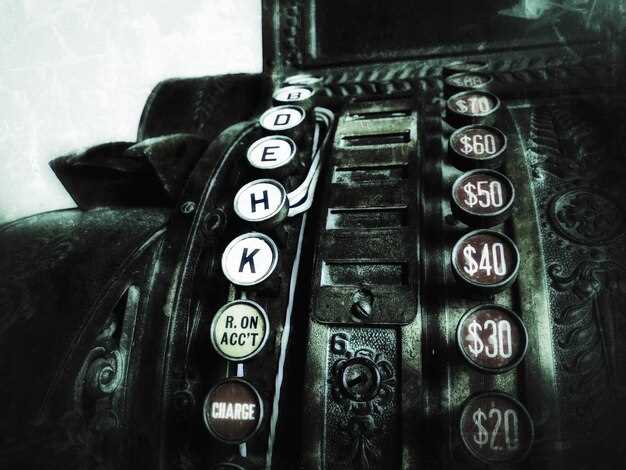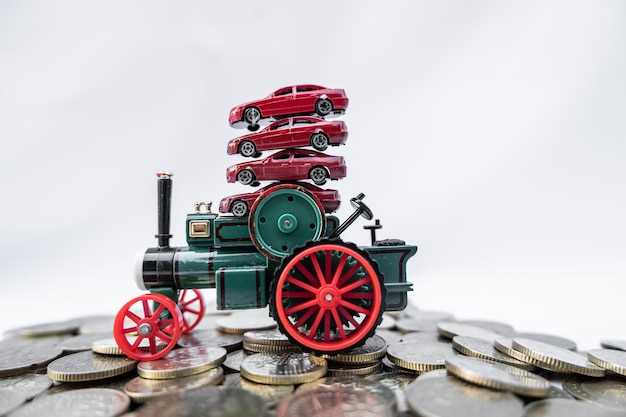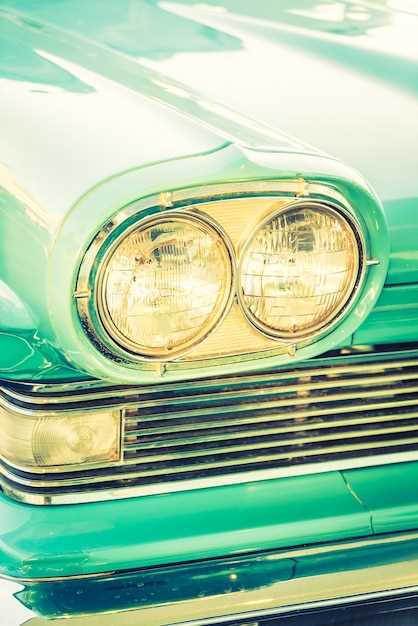
The world of classic cars has always captured the imagination of enthusiasts, and in 2023, the market shows exceptional potential for investment. As collectors and investors alike seek unique vehicles that embody artistry and engineering, certain classic cars are experiencing a remarkable surge in value. This trend underscores the importance of understanding which models are currently capturing interest and why they are proving to be wise financial decisions.
In a landscape where traditional investments may lack the allure and tangible heritage provided by classic cars, discerning investors are turning to automobiles not just for passion but also as viable assets. The appeal of classic cars lies not only in their aesthetic qualities but also in their ability to appreciate over time. Factors such as rarity, historical significance, and iconic status contribute to the rising demand, making these vehicles increasingly attractive as a form of investment.
This article highlights the top 10 classic cars that are gaining value in 2023. Each car featured represents a unique opportunity for collectors to expand their portfolios while enjoying the rich history and culture these vehicles embody. Whether you are a seasoned collector or a newcomer to the world of classic cars, understanding these trends can help you make informed decisions in your pursuit of automotive treasures.
Criteria for Selecting High-Value Classic Cars

When considering classic cars as an investment, several criteria can significantly influence their potential value appreciation. First, the make and model play a crucial role; certain brands have a storied history and a dedicated collector base, which often drives up demand. Icons such as Ferrari, Porsche, and Aston Martin are prime examples of marques that consistently attract attention.
Rarity is another essential factor. Limited production runs or unique variants, such as special editions or models with notable race history, tend to appreciate faster. Cars that were produced in smaller quantities are often seen as more desirable, making them excellent candidates for investment.
The condition of the vehicle is paramount. Cars that are well-preserved or have undergone meticulous restoration generally command higher prices. Documentation of restoration work and vehicle history, including ownership and maintenance records, enhances credibility and desirability in the eyes of potential buyers.
Market trends should also be monitored. Certain classic cars may experience surges in popularity due to cultural references, significant auction results, or renewed interest from younger collectors. Staying informed about current market dynamics can provide insights into which vehicles are likely to appreciate in value.
Finally, the potential for future investment returns hinges on the vehicle’s performance and driving experience. Classic cars that offer an engaging and enjoyable driving experience tend to maintain their allure over time, cementing their status as valuable assets.
Market Trends Influencing Classic Car Prices
The classic car market has seen noticeable fluctuations in recent years, driven by various investment trends and consumer interests. One primary factor is the increasing appreciation for vintage vehicles as viable investment options. Collectors and enthusiasts are recognizing that classic cars can yield significant returns, often outperforming traditional investment vehicles like stocks and bonds.
Another influential trend is the growing interest among younger generations in classic vehicles. As millennials and Gen Z become more financially stable, they are looking for unique assets that carry historical significance. This demographic shift has led to a revitalized demand for certain models, particularly those with iconic status or limited production runs.
The impact of technology cannot be overlooked. Online auctions and social media platforms have revolutionized how classic cars are bought and sold. This accessibility has broadened the market, allowing sellers to reach a wider audience and enabling buyers to find unique pieces that might not have been available in traditional venues. As a result, prices are often driven higher by competitive bidding and heightened interest.
Additionally, the current emphasis on electric and environmentally friendly vehicles has sparked a counter-trend that glorifies classic cars. Many buyers are drawn to the nostalgia and craftsmanship associated with older models, often viewing them as more than mere vehicles; they are considered art pieces and symbols of an era. This cultural appreciation contributes to an increase in value over time.
Finally, economic conditions play a crucial role in determining classic car prices. Factors such as inflation, interest rates, and overall market stability can either positively or negatively impact investment decisions. During times of economic uncertainty, classic cars may be viewed as safer investments, driving their market prices up further.
Practical Tips for Investing in Classic Cars

Investing in classic cars can be a rewarding venture, but it requires careful planning and consideration. Here are some practical tips to guide you in making informed investment decisions.
1. Research the Market: Before committing to any purchase, take the time to research current trends in the classic car market. Understanding which models are gaining popularity and value can significantly influence your investment choices.
2. Choose the Right Model: Certain car models are known for appreciating in value over time. Focus on iconic brands and limited editions, as they are more likely to become sought after by collectors and enthusiasts.
3. Consider Condition and Restoration Potential: The condition of the car plays a crucial role in its investment potential. Look for vehicles that are well-preserved or restorable. A classic car in excellent condition typically commands a higher price.
4. Verify Documentation: Ensure that the classic car comes with complete documentation, including the title, maintenance records, and provenance. Transparent ownership history can enhance the car’s value and make it easier to sell later.
5. Network with Experts: Building relationships with classic car dealers, clubs, and auction houses can provide valuable insights and access to exclusive opportunities. Engaging with experienced collectors can also help you avoid common pitfalls.
6. Be Mindful of Storage and Maintenance: Proper storage and maintenance are vital to preserving a classic car’s value. Invest in a secure environment and regular upkeep to prevent deterioration and additional costs in the future.
7. Monitor Values Over Time: Keep track of your car’s value periodically to gauge the return on your investment. Market fluctuations can impact prices, so staying informed will help you make timely decisions about selling or holding onto your classic car.
8. Be Patient: Classic car investments are often long-term commitments. Recognize that immediate gains may not be possible, and patience is necessary for realizing significant returns.
9. Consider Insurance: Proper insurance coverage is essential for protecting your investment. Look for policies specifically designed for classic cars, as they typically offer better protection in case of accidents or theft.
10. Enjoy the Journey: Finally, remember that investing in classic cars should be enjoyable. Immerse yourself in the community, attend events, and appreciate the artistry of these vehicles. This passion will enhance your investment experience.
